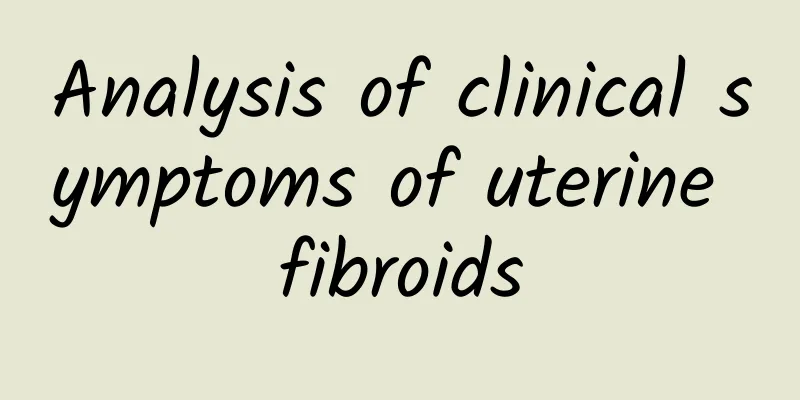Is it easy to get pregnant with uterine cyst?

|
Uterine cysts may affect pregnancy, but this depends on the type, size and specific circumstances of the cyst. Some uterine cysts may have no direct effect on pregnancy, while others may cause infertility or complications. Cysts such as functional ovarian cysts do not usually affect pregnancy because they often resolve on their own within a few months. However, endometrioid cysts (chocolate cysts) may cause pelvic pain and adhesions, which can affect fertility. Larger cysts may compress surrounding tissues, causing infertility or complicated pregnancy situations. Uterine cysts may result from a variety of factors, such as ovarian cysts caused by hormonal fluctuations, or cysts caused by endometriosis. Certain cysts, such as dermoid cysts or fibroids, are less common, but they are still worth noting because they may be accompanied by other pathological changes. Such cysts should be confirmed by imaging tests, such as ultrasound or MRI. After the diagnosis is confirmed, depending on the specific nature of the cyst, the doctor may sometimes recommend waiting and observing, especially for functional cysts. For cysts that affect pregnancy, drug treatment may be required to control hormone levels, using drugs such as birth control pills or progesterone regulating drugs. For more severe or persistent cysts, surgical intervention may be required, such as laparoscopic surgery or open surgery. Surgery can usually remove cysts while preserving fertility, but the specific plan needs to be made according to the patient's specific situation. Uterine cysts may result from a variety of factors, such as ovarian cysts caused by hormonal fluctuations, or cysts caused by endometriosis. Certain cysts, such as dermoid cysts or fibroids, are less common, but they are still worth noting because they may be accompanied by other pathological changes. Such cysts should be confirmed by imaging tests, such as ultrasound or MRI. After the diagnosis is confirmed, depending on the specific nature of the cyst, the doctor may sometimes recommend waiting and observing, especially for functional cysts. For cysts that affect pregnancy, drug treatment may be required to control hormone levels, using drugs such as birth control pills or progesterone regulating drugs. For more severe or persistent cysts, surgical intervention may be required, such as laparoscopic surgery or open surgery. Surgery can usually remove cysts while preserving fertility, but the specific plan needs to be made according to the patient's specific situation. To increase the likelihood of pregnancy, regular medical checkups are necessary, especially when planning a pregnancy. Maintaining a healthy lifestyle, including a balanced diet and moderate exercise, can also help improve fertility. If the cyst causes significant discomfort or pregnancy problems, seek advice from a healthcare professional as soon as possible. With professional counseling and treatment, many women affected by uterine cysts are able to conceive successfully and have a healthy pregnancy. |
<<: What happens if endometriosis is not treated? 22 years old
>>: How to Detect Endometriosis
Recommend
What causes pelvic inflammatory disease?
What causes pelvic inflammatory disease? Pelvic i...
Will irregular menstruation heal itself?
Will irregular menstruation heal on its own? If t...
What should I pay attention to when I have cervical precancerous lesions?
What are the nursing measures for female cervical...
What medicine is effective for vulvar itching?
Vaginitis secretions irritate the vulva, which ma...
Etiological treatment of secondary dysmenorrhea is the key
What treatment method should women with secondary...
What are the symptoms of female vaginitis and cervical erosion? Analysis of the symptoms of three degrees of cervical erosion in women
The prevalence of cervical erosion in most places...
Is intravenous drip useful for pelvic inflammatory disease? It is also effective
Pelvic inflammatory disease is also effective wit...
Can cervical erosion be cured? Different degrees of cervical erosion require symptomatic treatment
Cervical erosion can be divided into mild, modera...
How long does it take for abdominal pain to occur in ectopic pregnancy?
Abdominal pain usually occurs within 1-2 weeks af...
Analyze the common causes of adnexitis
Adnexitis is a gynecological disease that may cau...
Why do you need to hold your urine when doing B-ultrasound for uterine fibroids? Do you need to hold your urine when doing B-ultrasound for uterine fibroids?
Uterine fibroids are common benign tumors in wome...
What should I do if abnormal leucorrhea occurs repeatedly?
What should I do if abnormal leucorrhea occurs re...
What are the types of cervical erosion?
According to different situations of cervical ero...
Clinical manifestations of chronic cervicitis
Cervicitis can generally be divided into many typ...
How much does it cost to do a superconducting visual painless abortion?
How much does it cost to do a superconducting vis...









